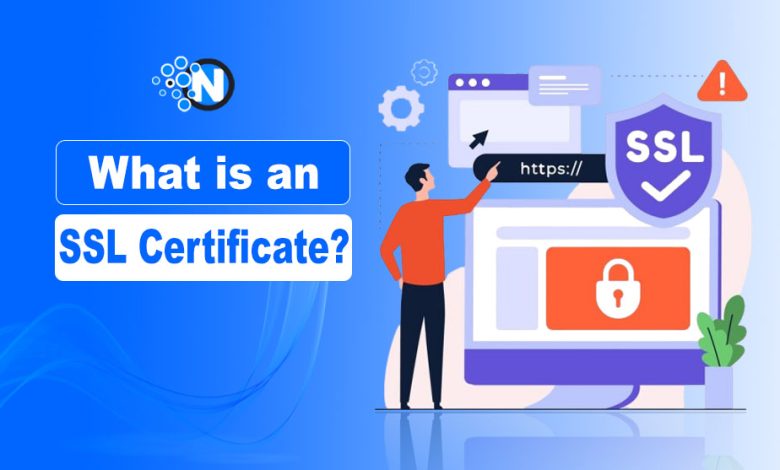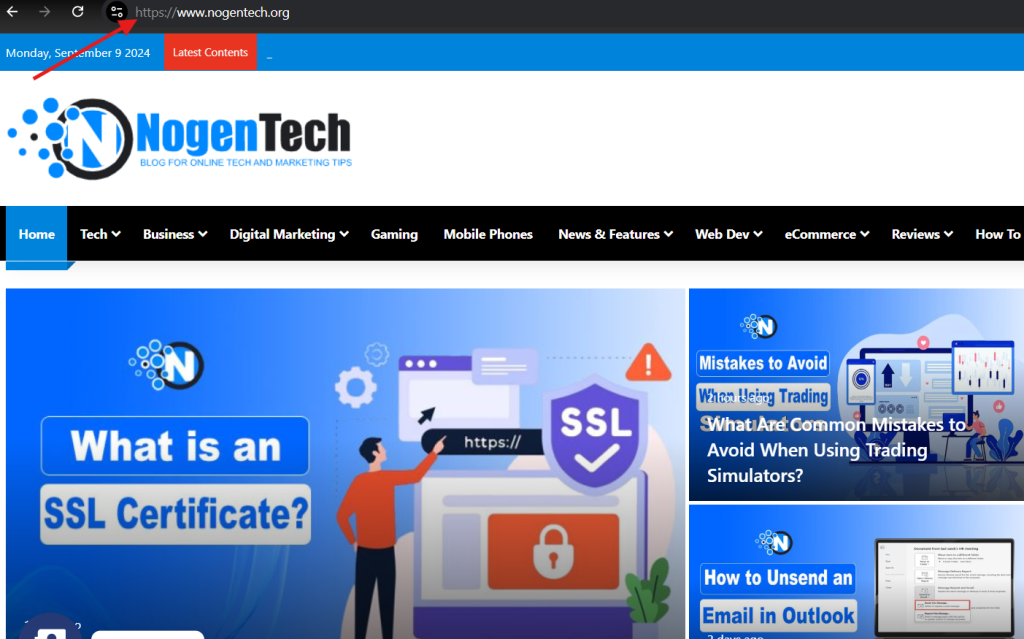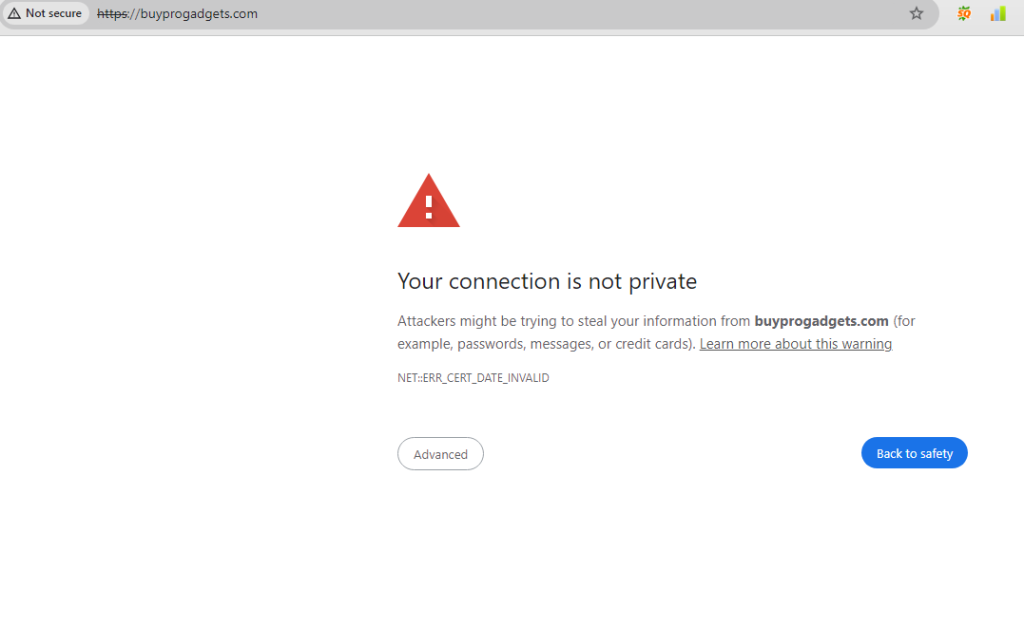What is an SSL Certificate? Why is it Needed

A tool such as an SSL certificate allows you to exclude the unauthorized transfer of personal data to third parties. I will suggest understanding what it is, and how information protection works. Here you will find step-by-step instructions for installing an SSL certificate on your website.
On the Internet, you can find any information that is known to people today. This is a huge plus of the World Wide Web – users of the global network spend hours disappearing on the pages of popular websites and social networks to find out news, make purchases, and learn new skills and abilities.
<mark style="background-color:rgba(0, 0, 0, 0);color:#0061fb" class="has-inline-color">What is an SSL Certificate?</mark>
An SSL (Secure Sockets Layer) certificate is a digital certificate that authenticates the identity of a website and encrypts data transmitted between the website and its visitors’ web browsers. It serves as a data security protocol that establishes a secure connection between a web server and a browser, for the data exchanged remains private and integral.
SSL certificates are crucial for ensuring the security and integrity of data transmitted over the internet. This include particularly sensitive information such as login credentials, payment details, and personal information. When a website has an SSL certificate installed, it actives the HTTPS (Hypertext Transfer Protocol Secure) protocol, which encrypts data during transmission. It makes it much more difficult for unauthorized parties to intercept or tamper with it.

Example: Your girlfriend orders clothes from an online store and pays for the purchase with a bank card. Through a special form on the website, she imports the data of the electronic wallet. Meanwhile, the browser forwards the information to the server, where a special software verifies the correctness of the data provided. Only after confirmation, does the bank debit the funds. And here is the most important thing.
Personal data is transmitted by the browser to the server in clear form. It is very often at this stage, scammers try to get them to use them for criminal purposes in the future – to steal money from the card. This practice was very common ten years ago. And it was almost impossible to find the “tail” of the attacker to return the funds and to bring him to justice. That is why the question arose about the security of transactions on the Internet.

<mark style="background-color:rgba(0, 0, 0, 0);color:#0061fb" class="has-inline-color">How Does the Security Protocol Work?</mark>
If the website owner does not use an SSL certificate, the data is transmitted between the browser and the server without encoding. When using an SSL certificate, the connection is secured. Your personal information is encrypted.
At the same time, a random set of characters is used to convert codes, passwords, and words. The decryption of such code is possible only when using a special key that is stored on the server.
Example: If an attacker attempts to intercept personal data during their transfer through the browser to the server, they will receive a set of characters that they will not be able to read, use, or substitute.
The security certificate excludes the transfer to unauthorized persons of any personal data – passwords, logins, or bank card numbers.
How do I know that an E-commerce Site Uses a Secure Connection Protocol?
Many ordinary users with great caution go to sites that arouse their suspicion. Moreover, personal computers often have software installed that blocks suspicious sites.
But even without such software, the consumer can understand whether the site in front of them is safe or malicious. To do this, he needs to look at the page address in the browser window.
If there is a green or gray padlock icon in front of the domain name, then the data is transmitted over a secure channel. You can also check for an SSL certificate in another way. If the letter S is present in the domain address after HTTP, then the resource uses a secure protocol.
Important: The presence of a lock before the text in the address bar or the letter “s” after “http” immediately indicates the security of the resource. These visual markers increase users’ trust in the website, as they serve as an indicator that personal data will not get to the attackers.
<mark style="background-color:rgba(0, 0, 0, 0);color:#0061fb" class="has-inline-color">Who Needs an SSL Certificate?</mark>
Any serious website is interested in guaranteeing the security of the connection to visitors. And if we are talking about registration with personal data, e-commerce, about the possibility of paying for a service through electronic payments, an SSL certificate is simply necessary.
1- What advantages does the site owner get with an SSL certificate?
- Increased consumer confidence.
- Protection of user data.
- The growth of the ranking in search engine results.
It is also a prerequisite for some services used to process data. With the installation of the certificate, the possibilities of using useful software increase.
2- Where to apply for the purchase of an SSL certificate?
Hosting services are not only reliable virtual private servers but also the ability to install an SSL certificate on any control panel that you have chosen. The provider offers its customers round-the-clock technical support, including the installation of a suitable security certificate. Also, you can always use the advice of specialists to choose the best option.
<mark style="background-color:rgba(0, 0, 0, 0);color:#0061fb" class="has-inline-color">Types of SSL Certificates</mark>
The specialized market offers several options for security certificates:
Domain Validation
This electronic document indicates that the site belongs to a private person, and its data is protected by the HTTPS protocol. You can get a certificate in a few hours.
Important: This is not the most reliable option, since almost any site owner can get it without presenting identity documents. It is suitable for a personal blog, an information portal, for websites whose activities do not provide payment for goods and services through electronic payments.
Organization Validation
Organization validation is an option for electronic stores and other representatives of small/medium-sized businesses. Issuing a certificate involves verifying the recipient. The company must present registration documents. If the user wants to make sure that the connection is secure, just click on the lock in the domain name line. In this case, information about the owner of the company appears.
Who is suitable: This security protocol is suitable for small trading platforms, insurance companies, ticket sales offices, and tourist resources. The advantage of the OV SSL certificate is that the price of the service is affordable, and the security of data transmission is high. Registration of such a certificate takes up to 3 days.
Extended Validation
Extended validation is a security certificate for a commercial resource with high traffic and numerous commercial transactions. To get this protocol, you will have to pass an extended check. Only legal entities can receive such an electronic document.
Important: Before issuing the certificate, the site, the owner, and the rights to conduct commercial activities are checked. Technical support can check for up to 14 days. A green lock or a green string with the domain name will inform the user that the site is verified and reliable.
- You can order a common certificate for several domains. In this case, each site is checked. It can be assigned to at least 3 to 5 domain names at the same time. There are cases when one certificate was issued to one hundred domains at the same time.
- The wildcard is a security protocol option for subdomains. The certificate is suitable for the case when the owner intends to protect not only the main domain but also subdomains.
<mark style="background-color:rgba(0, 0, 0, 0);color:#0061fb" class="has-inline-color">Final Words</mark>
One of the most basic safeguards against online dangers is an SSL certificate. In this digital age where nearly every aspect of our lives is conducted online, the lack of it puts our sensitive information, such as credit card numbers or personal details, in significant danger of being intercepted and leaves us vulnerable to various cyber security threats.
The provided examples illustrate the key features of SSL certificates that protect sensitive data from hackers. In addition, website owners may make better security judgments when they have a better understanding of the many types of SSL certificates and how they work in different areas. If you’re familiar with SSL certificates, you may boost the trustworthiness of your data.




